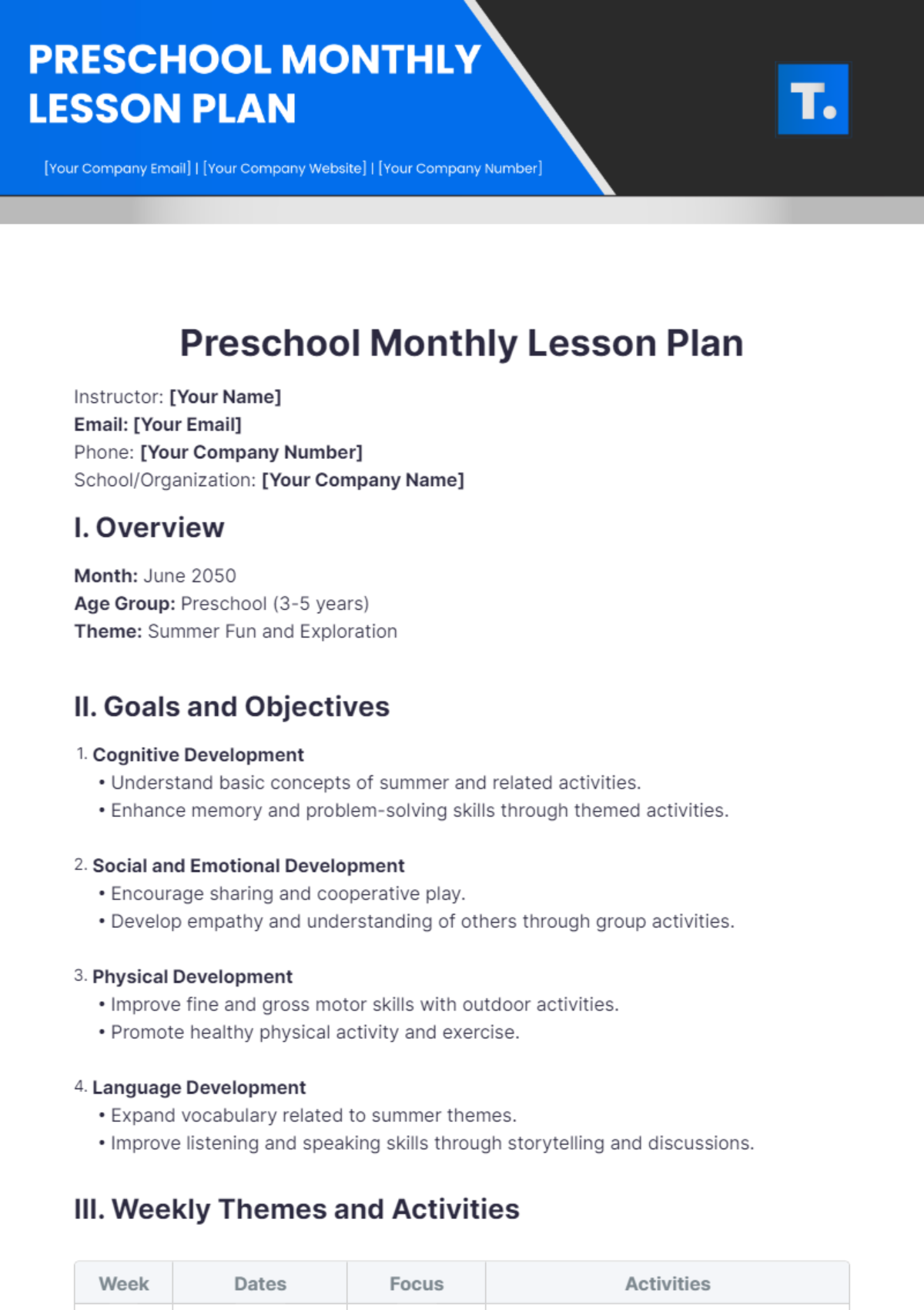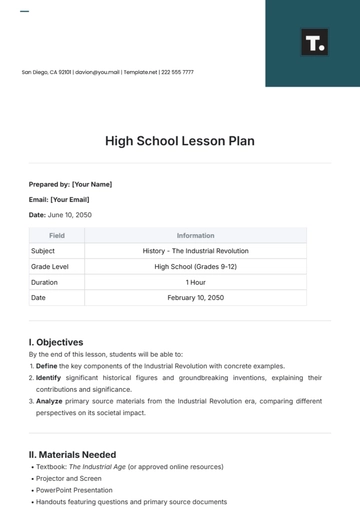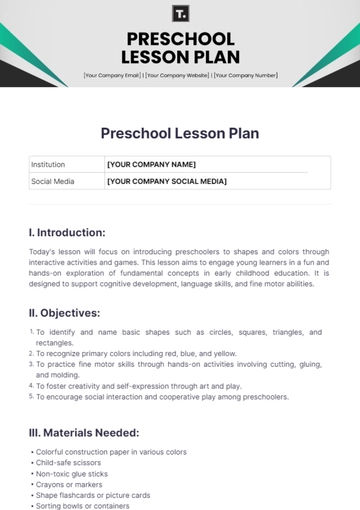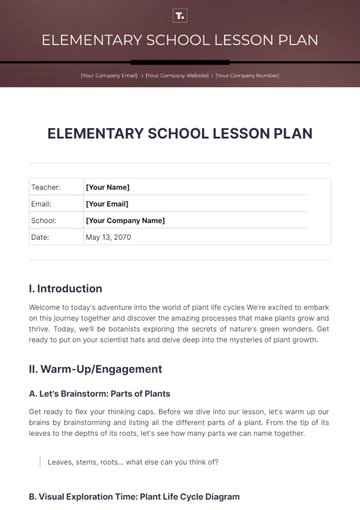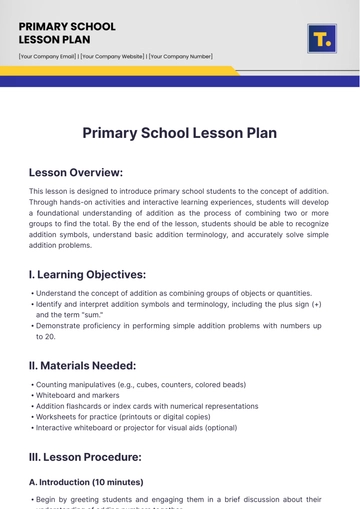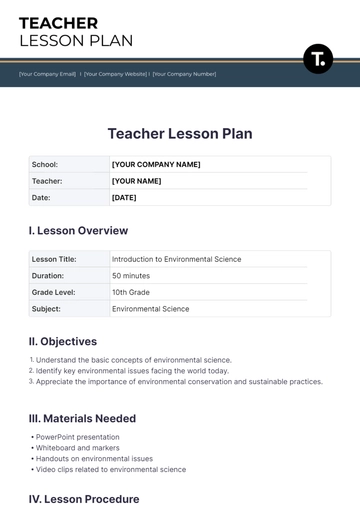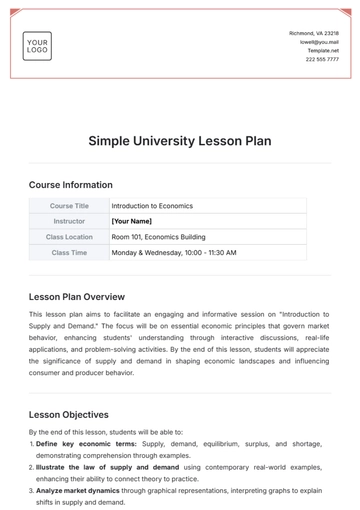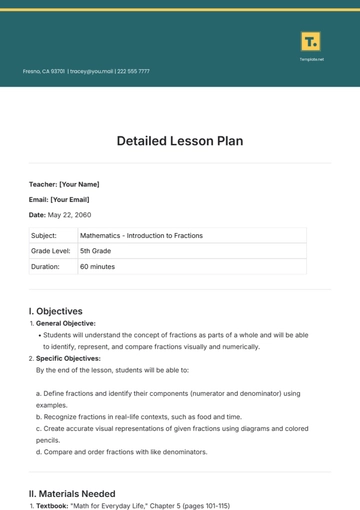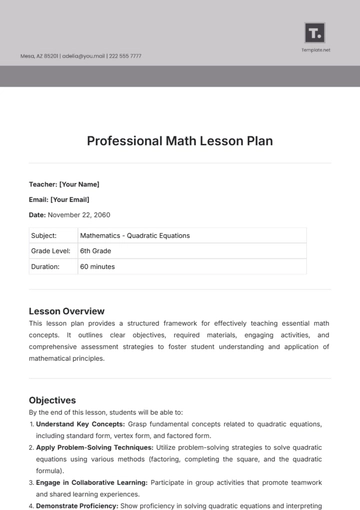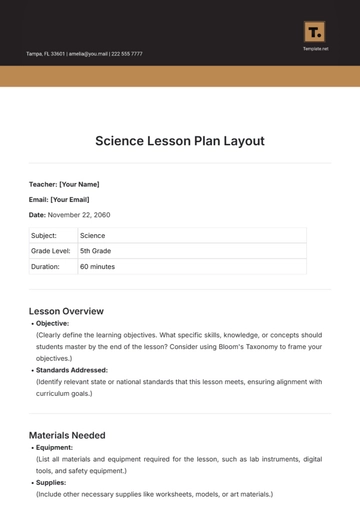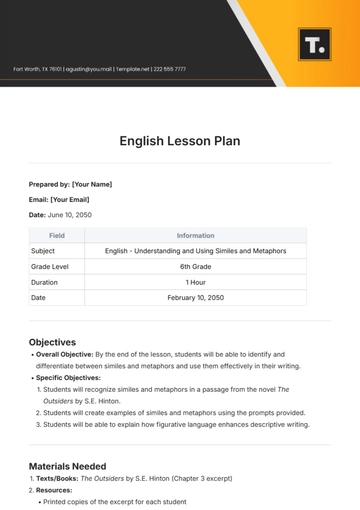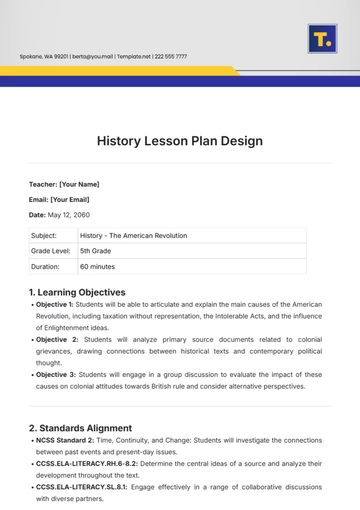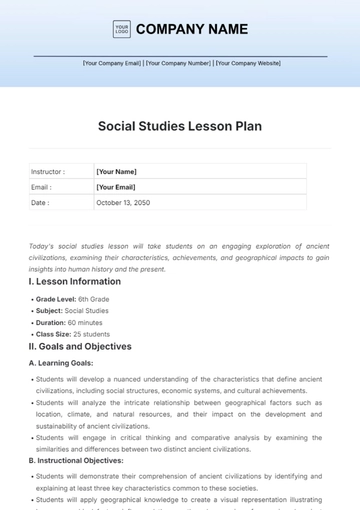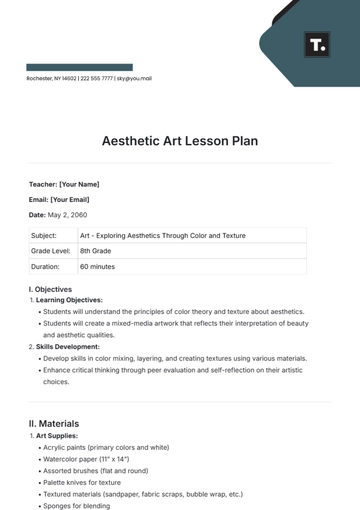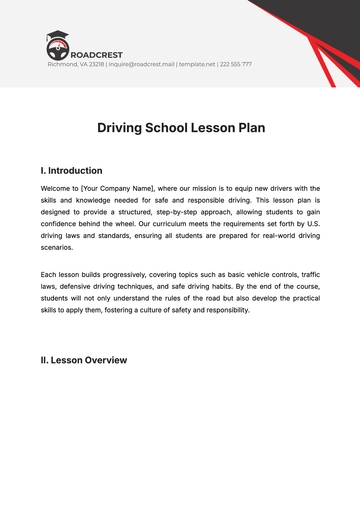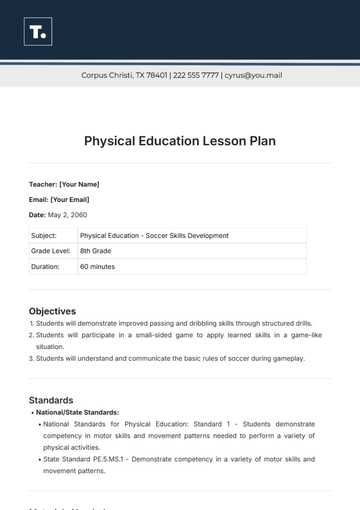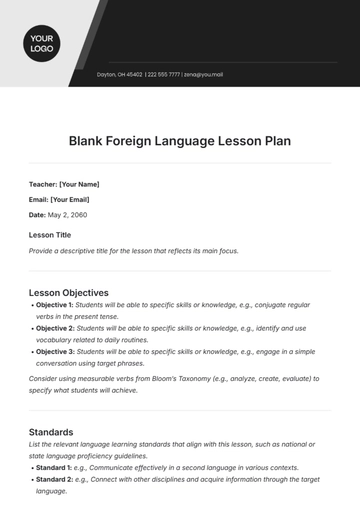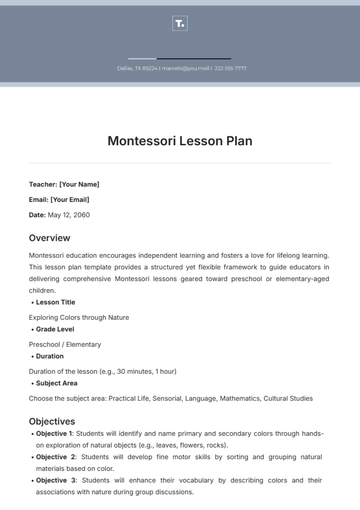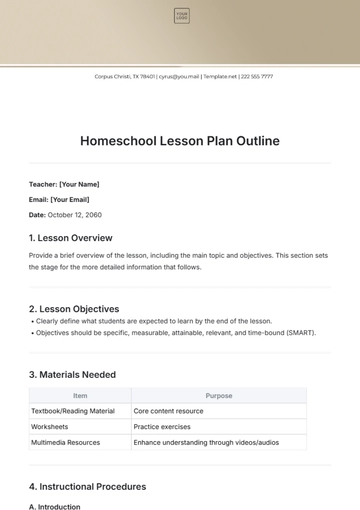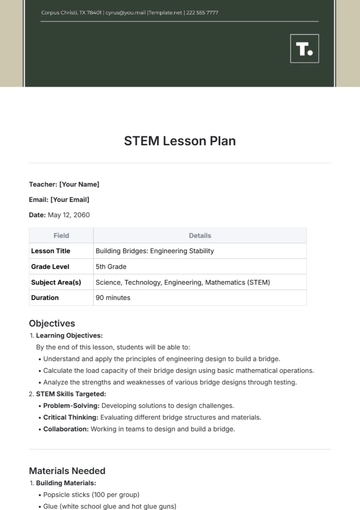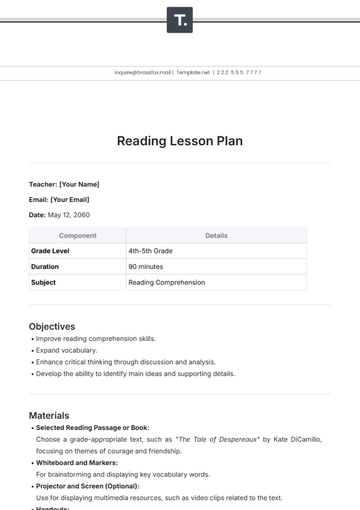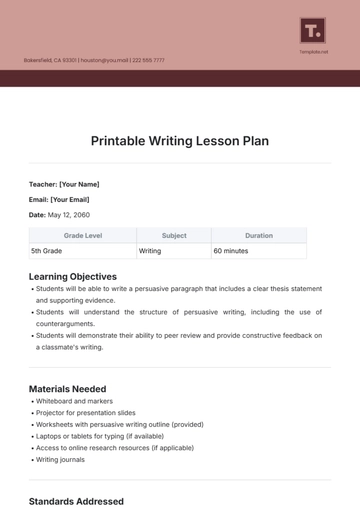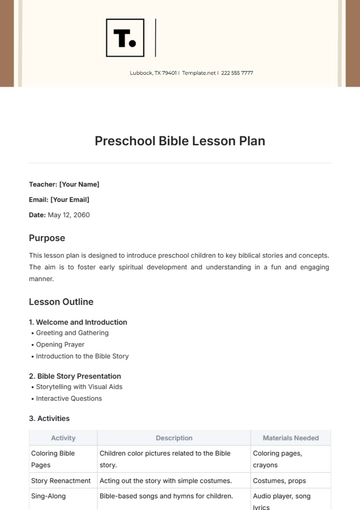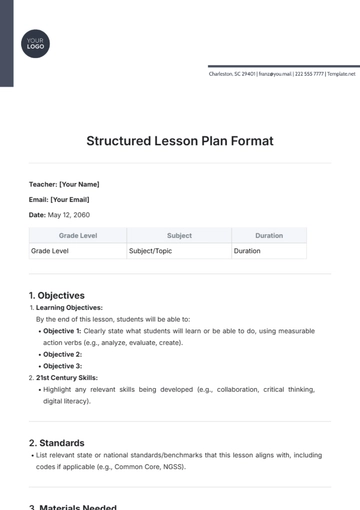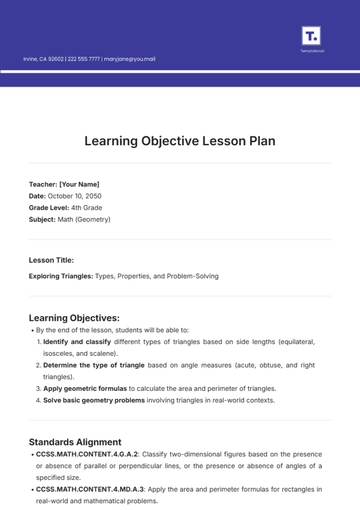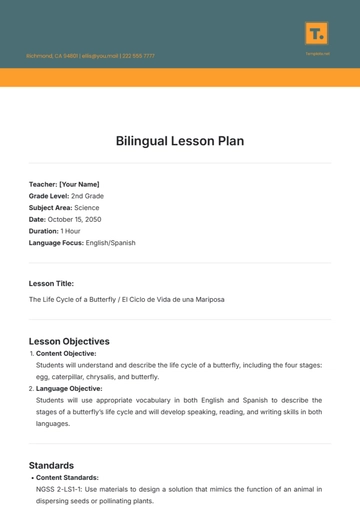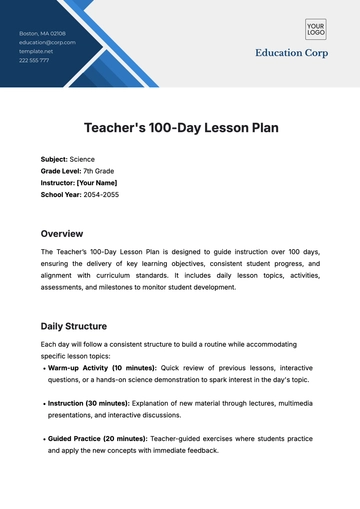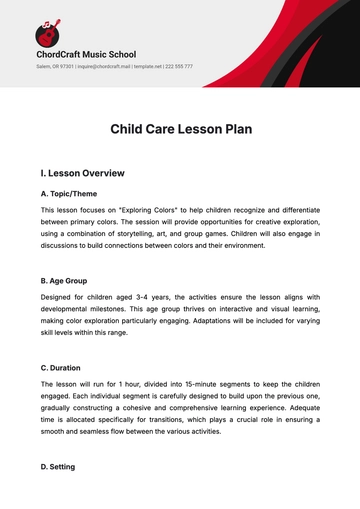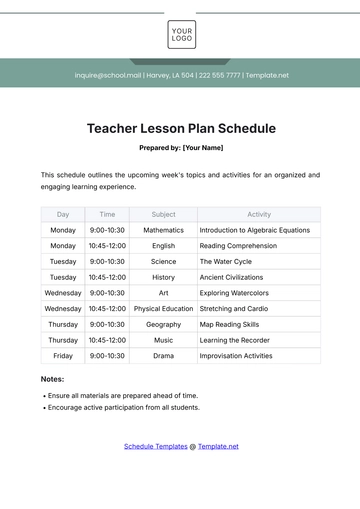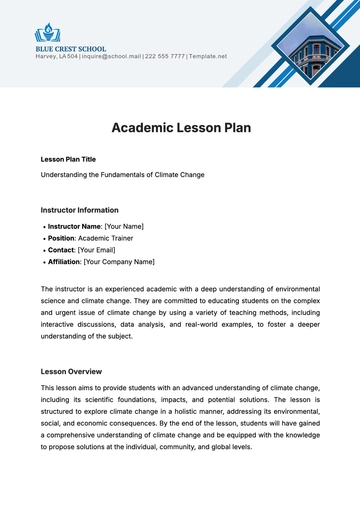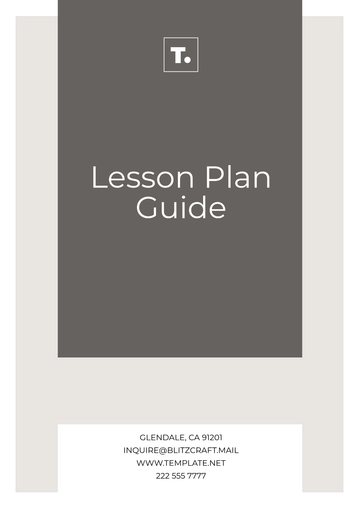Preschool Monthly Lesson Plan
Instructor: [Your Name]
Email: [Your Email]
Phone: [Your Company Number]
School/Organization: [Your Company Name]
I. Overview
Month: June 2050
Age Group: Preschool (3-5 years)
Theme: Summer Fun and Exploration
II. Goals and Objectives
Cognitive Development
Social and Emotional Development
Physical Development
Language Development
III. Weekly Themes and Activities
Week | Dates | Focus | Activities |
|---|
Week 1 | June 3 - June 7 | Summer Weather | • Art & Craft: Create a weather chart using various materials. • Science: Simple experiments demonstrating how rain is formed. • Outdoor Play: Sun safety game - learning how to stay safe in the sun. |
Week 2 | June 10 - June 14 | Beach and Ocean | • Art & Craft: Build sandcastles using kinetic sand. • Science: Introduction to ocean animals through pictures and videos. • Outdoor Play: Beach ball games and relay races. |
Week 3 | June 17 - June 21 | Picnic and Camping | • Art & Craft: Make paper tents and picnic baskets. • Science: Learn about insects found during camping. • Outdoor Play: Set up a pretend camping site and have a picnic. |
Week 4 | June 24 - June 28 | Summer Fruits and Vegetables | • Art & Craft: Fruit and vegetable stamping with paint. • Science: Taste test and learn about different fruits and vegetables. • Outdoor Play: Garden scavenger hunt to find hidden fruits and vegetables. |
IV. Daily Schedule
Time | Activity |
|---|
8:00 - 8:30 | Arrival and Free Play |
8:30 - 9:00 | Circle Time (Discussion of Daily Theme) |
9:00 - 10:00 | Themed Activity |
10:00 - 10:30 | Snack Time |
10:30 - 11:30 | Outdoor Play |
11:30 - 12:00 | Story Time |
12:00 - 1:00 | Lunch |
1:00 - 2:00 | Nap Time |
2:00 - 3:00 | Afternoon Activity (Art & Craft) |
3:00 - 3:30 | Clean Up and Departure |
V. Materials Needed
General Supplies:
Crayons, markers, colored pencils
Construction paper, glue, scissors
Paint and paintbrushes
Specific to Themes:
Kinetic sand (Week 2)
Plastic beach balls (Week 2)
Pretend camping equipment (Week 3)
Various fruits and vegetables for tasting (Week 4)
VI. Assessment and Evaluation
Several methods are used to assess and evaluate the children's progress:
A. Observational Checklists
Teachers will observe children during various activities and use checklists to monitor their participation, social interactions, and skill development. These observations help identify each child's strengths and areas where they may need additional support.
B. Portfolio Collections
Throughout the month, samples of children's work are collected, including artwork, crafts, and any written or drawn materials related to the weekly themes. These portfolios provide a comprehensive view of each child's progress and achievements over time.
C. Parent Feedback
Open communication with parents and guardians is maintained, with regular updates and discussions about their child's development. Parents can provide valuable insights into their child's behavior and learning at home, which can help tailor the approach to better meet each child's needs.
D. Developmental Milestones
Developmental milestones in cognitive, social, emotional, physical, and language domains are tracked. By comparing each child's progress with expected age-appropriate milestones, those who may need further evaluation or specialized support can be identified.
E. Interactive Assessments
Engaging children in interactive and playful assessments allows for evaluation of their understanding and skills in a natural and stress-free environment. Activities such as storytelling, role-playing, and problem-solving tasks are used to assess their cognitive and language development.
Overall, the assessment and evaluation processes are designed to be holistic, inclusive, and supportive, ensuring that every child receives the attention and resources needed to thrive in the preschool program.
Plan Templates @ Template.net
